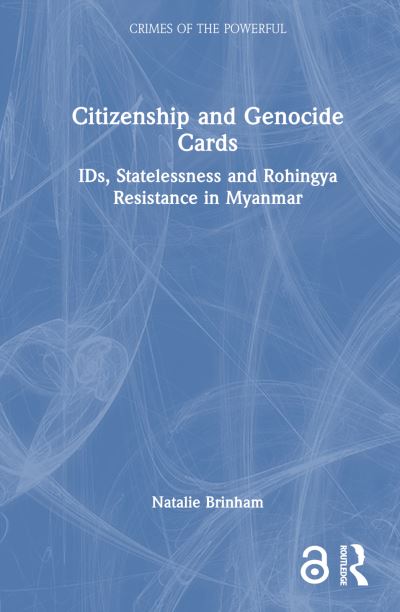
This book draws on Rohingya oral histories and narratives about Myanmar's genocide and ID schemes to critique prevailing international approaches to legal identities and statelessness. By centring the narratives of survivors of state crimes, collected in the aftermath of the 2017 genocidal violence, this book examines the multiple uses of state-issued ID cards and registration documents in producing statelessness and facilitating genocide. In doing so, it challenges some of the international solutions put forward to resolve statelessness.
Rohingya narratives disrupt a simple linear understanding of documenting legal identity that marginalises experiences of these processes. The richly layered accounts of the effects of citizenship laws and registration processes on the lives of Rohingya problematise the ways in which international actors have endorsed state ID schemes and by-passed state-led persecution of the group. This book will be valuable for scholars studying global criminology, state crime, development studies, refugee and migration studies, statelessness and nationality, citizenship studies, and genocide studies.
The Open Access version of this book, available at www.taylorfrancis.com, has been made available under a Creative Commons Attribution (CC-BY) 4.0 license.
| ISBN: | 9781032799254 |
| Publication date: | 30th October 2024 |
| Author: | Natalie Brinham |
| Publisher: | Routledge an imprint of UK Research and Innovation |
| Format: | Hardback |
| Pagination: | 280 pages |
| Series: | Crimes of the Powerful |
| Genres: |
Crime and criminology Colonialism and imperialism Public international law: human rights Ethnic studies Social and cultural anthropology Regional / International studies Sociology Law and society, sociology of law Legal aspects of criminology Legal history Social law and Medical law |